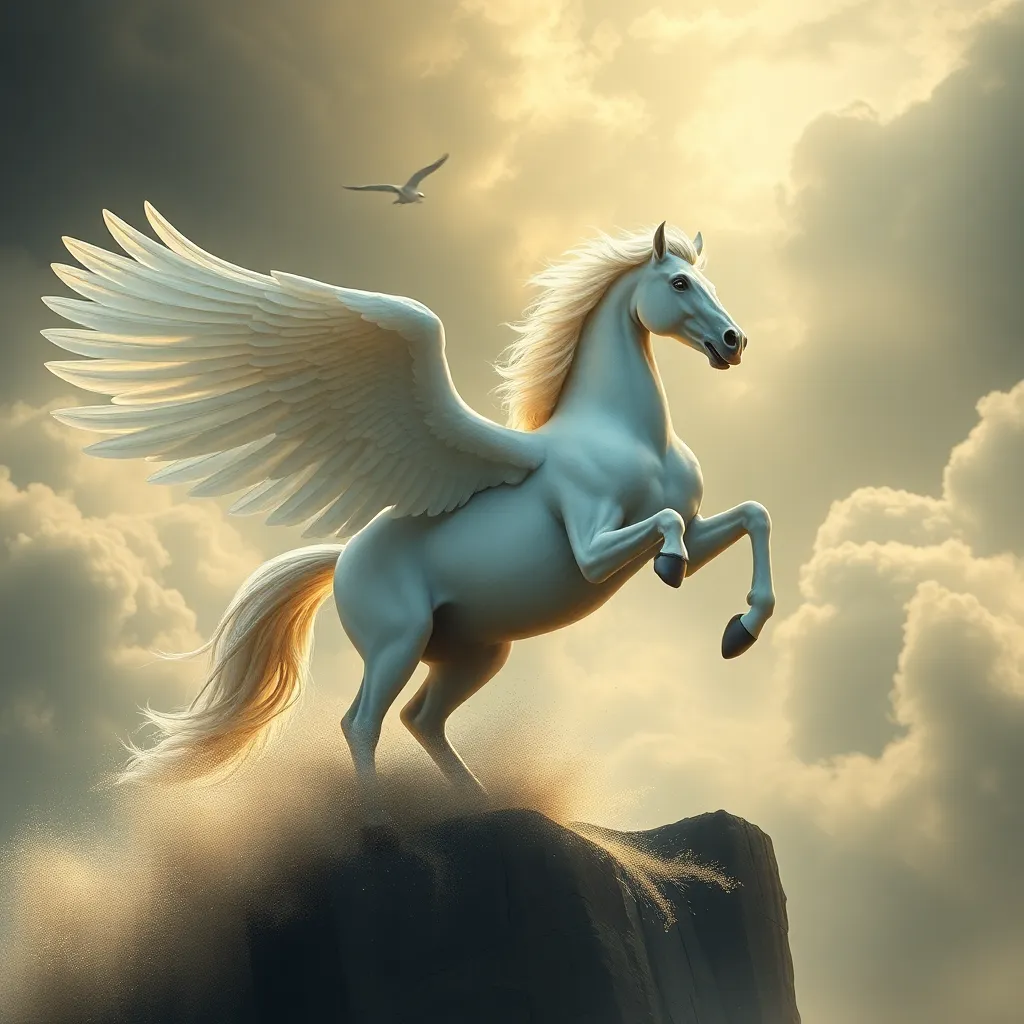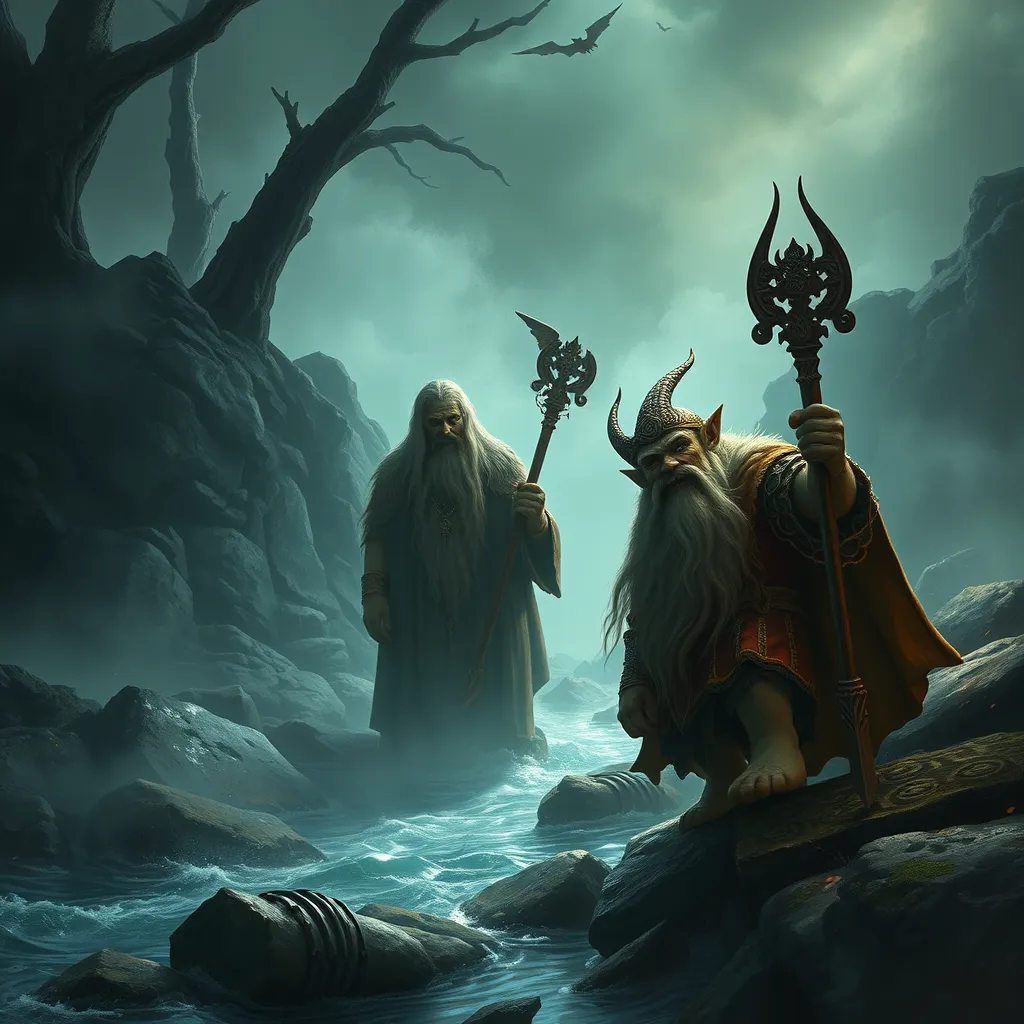Pegasus: The Timeless Myth and its Enduring Appeal Across Cultures and Eras
I. Introduction
The myth of Pegasus, the majestic winged horse, is one of the most enduring figures in mythology, captivating imaginations across centuries and cultures. Pegasus, often associated with inspiration and creativity, has become more than just a character in Greek mythology; he embodies the ideals of freedom and transcendence.
Myths play a crucial role in human culture, serving as vessels for moral lessons, cultural values, and the exploration of the human condition. Through storytelling, cultures communicate their beliefs, hopes, and fears, weaving a rich tapestry of shared narratives. This article aims to explore the enduring appeal of Pegasus, examining his origins, cultural significance, and the various ways this mythical creature continues to inspire us today.
II. The Origins of Pegasus in Greek Mythology
Pegasus was born from the blood of Medusa when she was slain by the hero Perseus. This miraculous birth symbolizes the duality of beauty and terror, as Pegasus emerged from the monstrous figure of Medusa. Represented as a pure white horse with wings, Pegasus embodies the ideals of nobility and grace.
One of the key myths involving Pegasus is the story of Bellerophon, a hero who sought to defeat the Chimera, a fire-breathing monster. With the help of Pegasus, Bellerophon was able to conquer the beast, showcasing the themes of heroism and the bond between man and mythical creature. This narrative not only highlights the prowess of Pegasus but also reflects the values of ancient Greek society, where courage and heroism were paramount.
Pegasus held a significant place in Greek culture and literature, symbolizing not just physical beauty but also the pursuit of knowledge and artistic inspiration. The ancient Greeks viewed Pegasus as a bridge between the earthly realm and the divine, often associated with the Muses, the goddesses of the arts and sciences.
III. Pegasus in Ancient Art and Literature
Throughout history, Pegasus has been a popular subject in ancient Greek art. From pottery to sculptures, artists depicted this winged horse in various forms, often emphasizing his majestic wings and ethereal grace. Notable examples include vases illustrating the battles of Bellerophon and the Chimera, capturing the dynamic and heroic essence of the myth.
In classical literature, Pegasus appears in the works of poets such as Hesiod and Ovid. Hesiod’s “Theogony” describes the origins of Pegasus, while Ovid’s “Metamorphoses” recounts the adventures of Bellerophon. These texts not only preserved the myth of Pegasus but also influenced the way subsequent generations interpreted and represented the character in their own artistic endeavors.
The influence of Pegasus extended beyond ancient Greece, inspiring movements such as the Renaissance and Romanticism, where artists and writers sought to reconnect with classical ideals. Pegasus became a symbol of artistic inspiration, urging creators to reach new heights in their work.
IV. Pegasus Across Different Cultures
The myth of Pegasus is not confined to Greek mythology; many cultures feature variations of the winged horse. In Hindu mythology, for example, the Ashvins are twin horsemen who embody various aspects of life and are often associated with healing and inspiration. Similarly, in Persian mythology, the winged horse Simurgh symbolizes wisdom and the connection between earth and sky.
These parallels highlight the universal appeal of winged horses in mythology, representing freedom, transcendence, and the divine. Across civilizations, the motif of a horse with wings transcends cultural boundaries, showcasing humanity’s shared fascination with the fantastical.
Cultural interpretations of the Pegasus story have evolved, with different societies adapting the myth to reflect their own values and beliefs. This adaptability speaks to the timelessness of the Pegasus myth and its resonance across varied cultural landscapes.
V. The Symbolism of Pegasus
Pegasus serves as a profound symbol of inspiration and creativity. As a creature that transcends the earthly realm, Pegasus represents the pursuit of artistic expression and the aspiration to reach new heights. In ancient Greece, he was closely associated with the Muses, the goddesses who inspired artists, poets, and philosophers.
- Inspiration: Pegasus symbolizes the spark of creativity that drives artists and thinkers.
- Freedom: His ability to fly signifies liberation from the constraints of the earth.
- Transcendence: Pegasus embodies the journey towards enlightenment and the quest for knowledge.
In contemporary culture, Pegasus continues to be reinterpreted, often symbolizing the desire to break free from limitations and embrace one’s creative potential. This enduring symbolism resonates with individuals seeking inspiration in their personal and professional lives.
VI. The Enduring Legacy of Pegasus in Modern Media
Pegasus has maintained a prominent presence in modern media, appearing in films, television shows, and literature. From animated features to fantasy novels, the character’s allure remains strong, captivating new generations of audiences. Notable examples include:
- Films: Movies like “Clash of the Titans” and animated adaptations of Greek myths frequently feature Pegasus, showcasing his heroic nature.
- Television: Series such as “Hercules: The Legendary Journeys” incorporate Pegasus into their narratives, further popularizing the myth.
- Literature: Contemporary fantasy novels often draw on the imagery of Pegasus to evoke themes of adventure and magical realism.
In popular culture, Pegasus has also found a place in comics and video games, where he is often depicted as a loyal companion to heroes or as a powerful being in his own right. The rise of digital media has played a significant role in the myth’s popularity, allowing for new interpretations and adaptations that resonate with modern audiences.
VII. The Psychological and Emotional Appeal of Pegasus
The psychological significance of Pegasus can be explored through Carl Jung’s theories of archetypes. As an archetype, Pegasus represents the inner desire for freedom and the transcendence of earthly limitations. This connection to the archetypal hero resonates with individuals seeking to break free from their constraints, both personally and creatively.
The allure of the fantastical is another reason for Pegasus’s emotional appeal. The image of a winged horse evokes a sense of wonder and possibility, inviting individuals to explore their imaginations and pursue their dreams. For many, Pegasus symbolizes the quest for freedom and the journey toward self-discovery.
Moreover, personal connections to the myth of Pegasus can vary widely. For some, Pegasus may represent artistic inspiration, while for others, he embodies the desire for adventure or the longing for liberation from societal expectations. These interpretations reflect the multifaceted nature of the myth and its ability to resonate with diverse audiences.
VIII. Conclusion
The significance of Pegasus transcends cultures and eras, embodying themes of inspiration, freedom, and transcendence. His story, rooted in Greek mythology, has evolved through time, adapting to reflect the values and beliefs of various societies. As we navigate the complexities of contemporary life, the timelessness of myths like that of Pegasus continues to hold relevance.
In a world that often seeks meaning and connection, the myth of Pegasus reminds us of the power of imagination and the importance of pursuing our dreams. As we look to the future, Pegasus’s legacy will undoubtedly continue to inspire generations to come, reminding us of the beauty of creativity and the boundless possibilities that await us.



